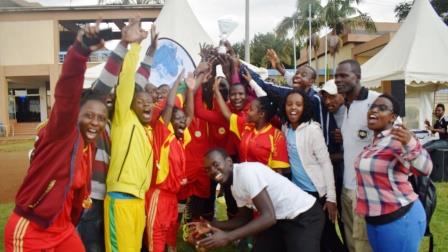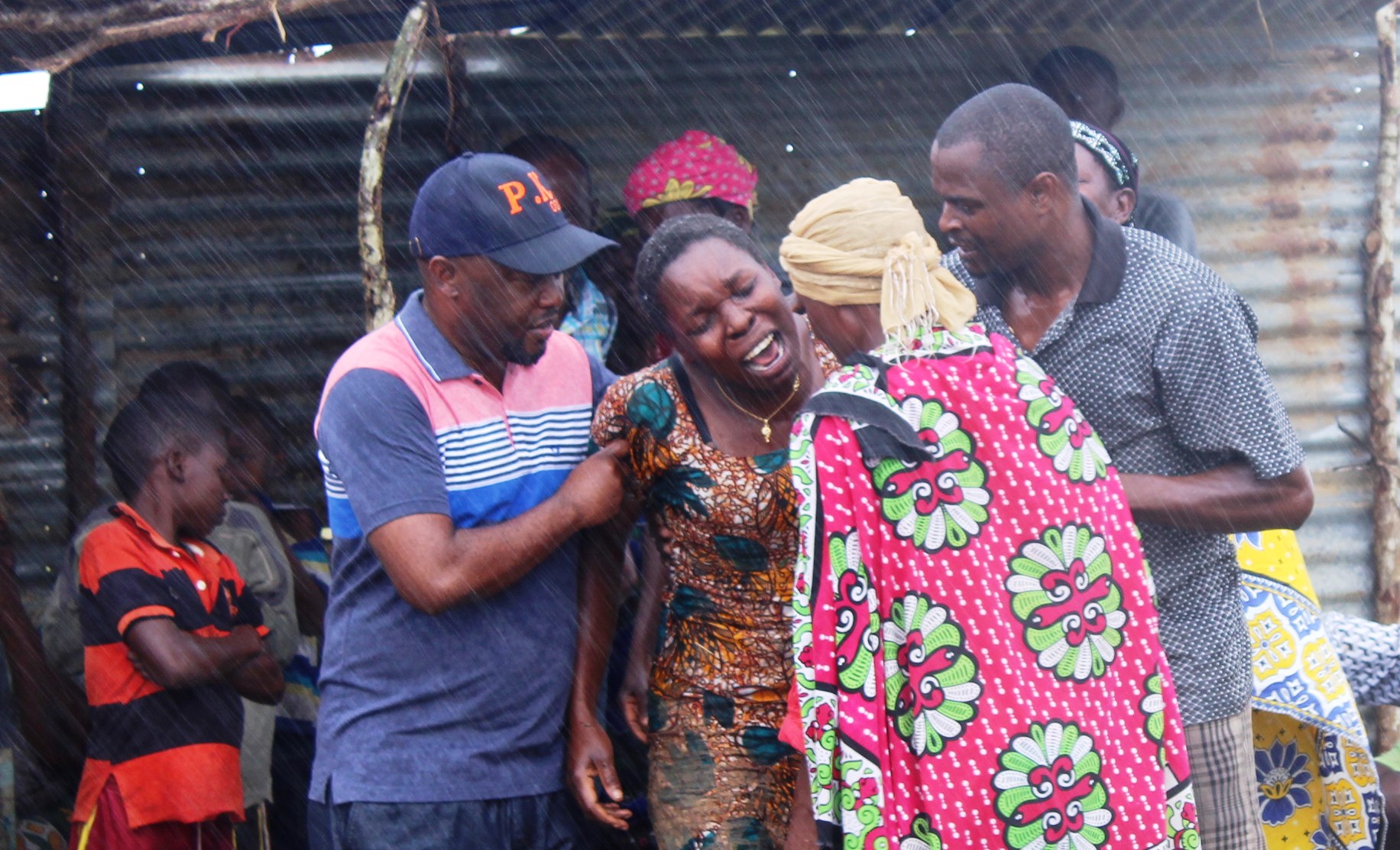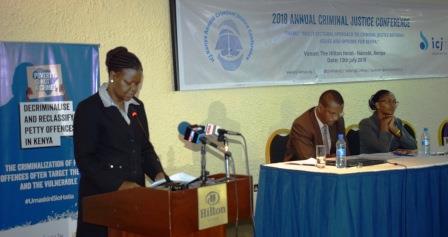Moses Okinyi
The Kenyan Section of the International Commission of Jurists (ICJ Kenya) hosts the Uwazi Cup Tournament annually, since 2010. This tournament is held as a team building event that brings together various players from Government, the corporate sector, civil society organizations, Legal practitioners, the Media among others. The main goal of the tournament is to advocate for good governance through transparency and accountability and provide an opportunity for team building and networking for participating organizations.
The theme of the tournament has over the years been informed by advocacy efforts for a legislative framework on the right to information in Kenya. This year, ICJ Kenya hosted the 9th edition which took place on June 23rd 2018 at the Stima Sports Club in Nairobi under the theme ‘Poverty is not Crime: Decriminalize and Re-classify Petty Offences
The Kenya School of Law emerged the WINNERS of this year’s edition after defeating Kenya Law Reporting by 3 goals to 1. Astral Aviation emerged 3rd after hammering NIC Bank by 3 goals to 2 in the third place play off.
Tom Ojienda and Associate Advocates appearing under the name Tom, Dick and Harry won the Plate after trashing Independent Medico Legal Unit 2-0 in the plate finals.
In the individual categories Kevin Otieno of Kenya Law Reporting emerged the Most Valuable Male player while Jane Mutune of NIC was the most valuable Female. Dennis Gicheru of the Kenya School of Law was the top male scorer with 12 goals while the top scorer in the women category was Mary Nyambura of the Law Society of Kenya with 2 goals.
The use of sports is one of the advocacy strategies used by ICJ Kenya to promote human rights, democracy and good governance. Sport is viewed as a key tool in promoting human rights across the globe and it is increasingly being recognized as a human right itself. It has a great positive influence through many programmes that have been used to promote the rights of women, children, people with disabilities and integration. Sports has a unique ability to attract, inspire people and to reduce barriers.
This year, the tournament brought together players from the government, the corporate sector, civil society organizations, legal practitioners, and the media among others. The main goal of the tournament being to: advocate for good governance through transparency and accountability; provide an opportunity for teambuilding and networking for participating organizations; and to advocate for the promotion of effective criminal justice system in Kenya.
The 2018 ICJ Kenya uwazi football tournament was held under the theme brought together all the key stakeholders in the criminal justice system including, the National Council on the Administration of Justice, Office of the Director of Public Prosecution, the Judiciary, the Police, County askaris, the Prisons Department, Probation and After Care Service, NGO’s and Civil Society Groups, and County Governments to deliberate on the issue of petty offences in Kenya.
ICJ Kenya is implementing a project titled “towards decriminalization and declassification of petty offences in Kenya”. The goal of this project is to promote the declassification and decriminalization of petty offences in Kenya. The specific objectives of the project are to promote reforms of legislation relating to petty offences and to create awareness on the effects of petty offences in Kenya.
Petty offences are offences other than felonies and misdemeanors, otherwise called simple or minor offences, for which the punishment is a warning, community service, a low-value fine or term of imprisonment not exceeding six months. Petty offences are vague, disproportionate, and arbitrary in nature, and in most instances are used to target street children, the poor, the homeless, sex workers, hawkers, people with substance use problems, and people with disabilities. They enable law enforcement to target people purely based on their social or economic status.
ICJ Kenya is part of elaborate national and regional campaigns aimed at decriminalizing and declassifying petty offences. On 23 June 2017, the Chief Justice of Kenya, Hon.David K Maraga, established The National Council on the Administration of Justice Committee on Criminal Justice Reforms. This Committee is tasked with spearheading the comprehensive review and reform of Kenya’s entire criminal justice system and overseeing the full implementation of the findings and recommendations of a report dubbed, the Criminal Justice System in Kenya: An Audit” , and The Kenyan Section of the International Commission of Jurists ( ICJ Kenya) research on, “Law and Policy on the Petty Offences and Practices Affecting Populations at the National Level and in Kisumu, Mombasa, and Nairobi Counties . One of the reforms being advocated for is the decriminalization and reclassification of petty offences
At the regional level, ICJ Kenya is a member of a coalition on reform, which drafted the principles on the reclassification of petty offences in Africa. The African Commission on Human and Peoples’ Rights at its ordinary session on November 11 adopted the “Draft Principles on the Declassification and Decriminalisation of Petty Offences in Africa.” The principles mandate State Parties to the African Charter to “declassify and decriminalise petty offences in accordance with these Principles and other regional and international human rights.” Article 11 of the Principles also mandates State Parties “to take legislative, administrative and policy measures to ensure that laws and their enforcement comply with these Principles and other regional and international human rights standards.











